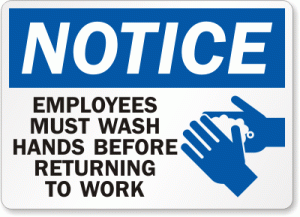“…(Patent Troll Litigation) threaten(s) litigation if (businesses) don’t pay a licensing fee for their alleged patented technology, but their demands  are so obscure that it is virtually impossible to determine the validity of the patent claims, or even whether they own the patent in question. When we receive a patent assertion claim, it typically comes in the form of a letter demanding that we pay licensing fees or be taken to court…expenses include the costs associated with hiring outside counsel. In the past two years, our legal costs associated with patent trolls have increased from one-quarter of one percent to nearly twenty percent of our total legal costs…”
are so obscure that it is virtually impossible to determine the validity of the patent claims, or even whether they own the patent in question. When we receive a patent assertion claim, it typically comes in the form of a letter demanding that we pay licensing fees or be taken to court…expenses include the costs associated with hiring outside counsel. In the past two years, our legal costs associated with patent trolls have increased from one-quarter of one percent to nearly twenty percent of our total legal costs…”
H.R. 3309 (The Innovation Act) requires a party alleging patent infringinement to disclose more information than is currently required in its initial pleadings. Speficially, the bill requires a claimaint to identify the patents and claims that are allegedly infringed; and to specify how they are being infringed.
White Castle first opened our doors in Columbus in 1921. Today, our nearly 10,000 team members working in 406 restaurant locations across 12 states deliver the “Taste America Craves.” We remain a family owned business committed to our customers and our communities. Our success has been driven by the principle that good business, great food and responsible citizenship should all go together.
The restaurant industry, with nearly one million locations, is an incredibly competitive industry. We are constantly seeking new ways to provide additional value to our customers and keep them coming back to our restaurants. This includes our online ordering applications to searching for your nearest white castle location on your mobile device.
Unfortunately, there is a rising threat to White Castle and many other companies interested in providing our customers with the experience they want…it’s called a “patent troll.â€Â Now, as you can assume by the name, these patent trolls aren’t your legitimate patent holders or small inventors. These are entities that are created to exploit ambiguities in the patent system to make money off of Main Street businesses.







